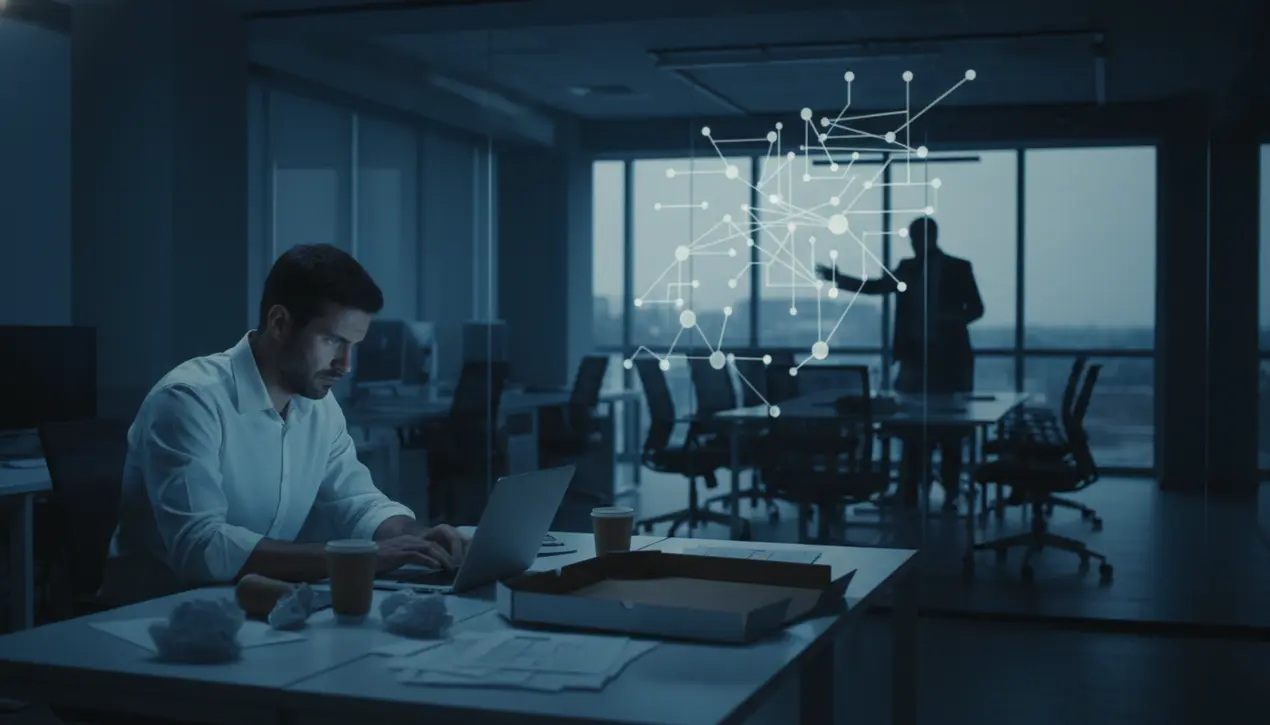
AIai safety & ethicsAI Impact on Jobs
The Unseen Costs of AI: A Modern Workplace Dilemma
MI
Michael Ross
2 hours ago7 min read2 comments
The push for AI adoption in the workplace is more than a corporate trend; it's a profound ethical challenge unfolding globally. For professionals like the AI engineer from a mid-sized ad agency who contacted Vox, this is a daily reality where non-technical leaders promote generative AI with unwavering optimism, creating a culture where raising concerns can lead to professional isolation.This struggle represents a pivotal moment in technological integration, echoing historical confrontations with transformative technologies from the industrial loom to the digital revolution. The central conflict extends beyond mere efficiency gains to examine who bears the hidden consequences—the environmental impact of power-intensive data centers, potential widespread job displacement despite productivity promises, and ethical questions surrounding opaque algorithmic decision-making.The recommended solution of seeking collective support reflects labor movement strategies that have historically rebalanced power during technological shifts. Modern resistance mirrors past movements, exemplified by the Writers Guild of America securing protections against AI-generated content and healthcare unions negotiating algorithmic involvement in patient care.These efforts represent not opposition to progress, but demands for inclusive decision-making about technological implementation. The environmental implications alone demand attention, with single AI model training sessions sometimes consuming more electricity than annual usage of hundreds of households—creating carbon footprints that contradict corporate sustainability commitments.Meanwhile, financial benefits often concentrate among tech giants while risks—from algorithmic bias to worker adaptation stress—distribute across society. This scenario illustrates what philosopher Langdon Winner called 'technological somnambulism,' where societies adopt new technologies without conscious democratic deliberation.Collective action becomes essential not just for worker protection but as an epistemological requirement. No individual employee can fully assess AI's multidimensional impacts, but organized coalitions can combine expertise from data privacy specialists to environmental scientists, creating comprehensive evaluation frameworks.Successful community efforts blocking billions in data center projects demonstrate that coordinated resistance can be effective. The fundamental conflict isn't with AI technology itself, but with its uncritical implementation—the failure to ask who truly benefits and who bears the costs. Moving forward requires balancing technological optimism with thoughtful caution, recognizing that the most humane AI applications may emerge not from its strongest advocates, but from its most insightful critics.
#AI resistance
#workplace ethics
#labor unions
#generative AI
#employee rights
#featured
Stay Informed. Act Smarter.
Get weekly highlights, major headlines, and expert insights — then put your knowledge to work in our live prediction markets.
Comments
Loading comments...
© 2025 Outpoll Service LTD. All rights reserved.